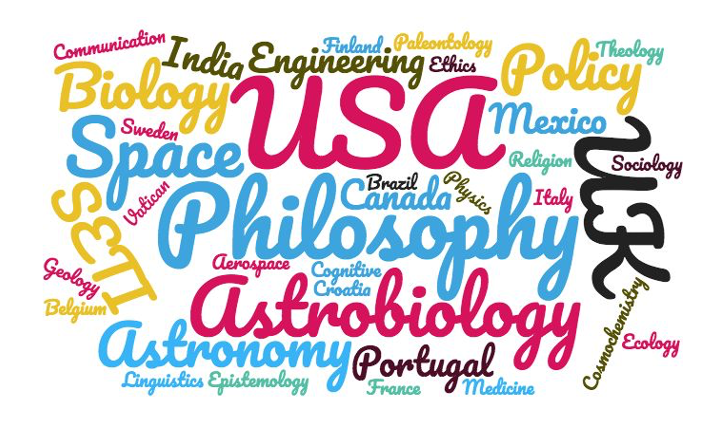
Proposal Title
(Poster) Who’s Afraid of Little Green Men? Genetic Enhancement for Off-World Settlements
Loading...
Start Date
14-12-2020 12:00 PM
End Date
14-12-2020 1:40 PM
Description
There many threats facing the Earth that could put humanity (and indeed the entire terrestrial ecosystem) at existential risk. This is a brute fact we must face head on. And we should also be clear that this risk imposes a clear prima facie moral duty to establish successful settlements on other worlds sooner rather than later in order to ensure our survival. That will be no easy task, but one promising approach that could make it considerably easier is the use of genetic enhancement to give off-world settlers much the biological adaptations they need to thrive in the harsh conditions they will encounter. Of course, there are many ethical concerns here that also should not be taken lightly, though it’s our view that, in general, they can be handled if we approach them with care. We thus begin this chapter by responding to several of the more common objections to genetic enhancement. Some of these are well taken in general but don’t pose an insurmountable obstacle to using this technology for settlements, while others are based on unexamined terrestrial assumptions that do not apply in off-world contexts. Next, we discuss how this debate, as with so many debates about the future, tracks an unacknowledged fault line between idealists and pragmatists. Idealists tend to see an off-world settlement as an opportunity to start afresh and create a better world than we have ever experienced on Earth while pragmatists tend to argue that tough choices will inevitably have to be made and, in the final analysis, it’s better to have an acceptable settlement now than hope for a perfect one in the distant future. To illustrate our approach, we critique Schwartz’s (2020) recent argument for the creation of an off-world settlement accessible to all who wish to go. While this is certainly a laudable vision, for practical reasons it is simply not a feasible demand, at least initially. Finally, we offer a vision for a realistic use of genetic enhancement that might make settlements easier to establish and then discuss what sorts of unique problems these could create. In the final analysis, we believe it’s possible to create a morally acceptable off-world settlement in the near future, though doing so may well involve controversial technologies like genetic enhancement. But given the stakes we face, we have a moral duty to forge ahead, though this does not absolve us of the responsibility to listen carefully to critics who seek to restrain some of our less thoughtful impulses. What we decide to do has to strike a complex balance, but it is ultimately not morally defensible to substitute our dreams of an ideal settlement for the possibility of a real one.
Recommended Citation
Hylkema, Caleb and Smith, Kelly, "(Poster) Who’s Afraid of Little Green Men? Genetic Enhancement for Off-World Settlements" (2020). Society for Social and Conceptual Issues in Astrobiology (SSoCIA) Conference. 12.
https://egrove.olemiss.edu/ssocia/2020/schedule/12
(Poster) Who’s Afraid of Little Green Men? Genetic Enhancement for Off-World Settlements
There many threats facing the Earth that could put humanity (and indeed the entire terrestrial ecosystem) at existential risk. This is a brute fact we must face head on. And we should also be clear that this risk imposes a clear prima facie moral duty to establish successful settlements on other worlds sooner rather than later in order to ensure our survival. That will be no easy task, but one promising approach that could make it considerably easier is the use of genetic enhancement to give off-world settlers much the biological adaptations they need to thrive in the harsh conditions they will encounter. Of course, there are many ethical concerns here that also should not be taken lightly, though it’s our view that, in general, they can be handled if we approach them with care. We thus begin this chapter by responding to several of the more common objections to genetic enhancement. Some of these are well taken in general but don’t pose an insurmountable obstacle to using this technology for settlements, while others are based on unexamined terrestrial assumptions that do not apply in off-world contexts. Next, we discuss how this debate, as with so many debates about the future, tracks an unacknowledged fault line between idealists and pragmatists. Idealists tend to see an off-world settlement as an opportunity to start afresh and create a better world than we have ever experienced on Earth while pragmatists tend to argue that tough choices will inevitably have to be made and, in the final analysis, it’s better to have an acceptable settlement now than hope for a perfect one in the distant future. To illustrate our approach, we critique Schwartz’s (2020) recent argument for the creation of an off-world settlement accessible to all who wish to go. While this is certainly a laudable vision, for practical reasons it is simply not a feasible demand, at least initially. Finally, we offer a vision for a realistic use of genetic enhancement that might make settlements easier to establish and then discuss what sorts of unique problems these could create. In the final analysis, we believe it’s possible to create a morally acceptable off-world settlement in the near future, though doing so may well involve controversial technologies like genetic enhancement. But given the stakes we face, we have a moral duty to forge ahead, though this does not absolve us of the responsibility to listen carefully to critics who seek to restrain some of our less thoughtful impulses. What we decide to do has to strike a complex balance, but it is ultimately not morally defensible to substitute our dreams of an ideal settlement for the possibility of a real one.

